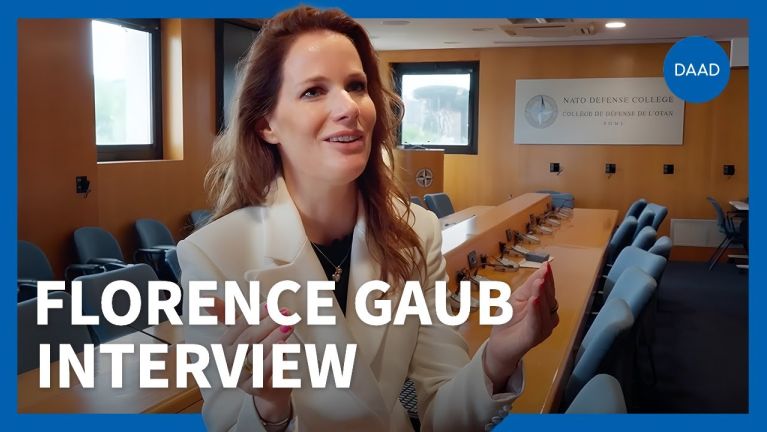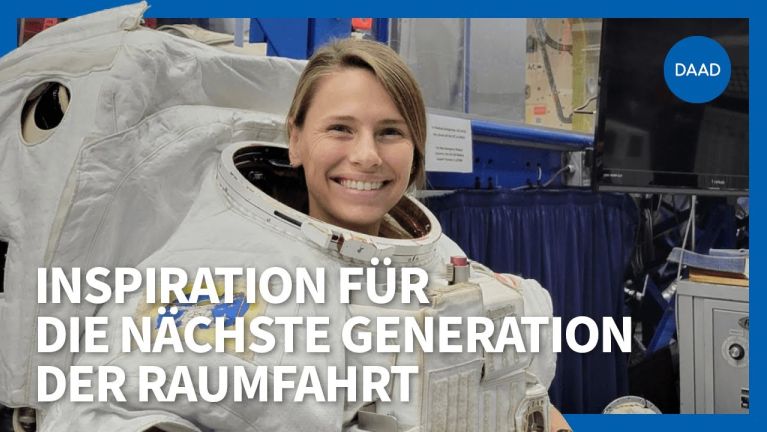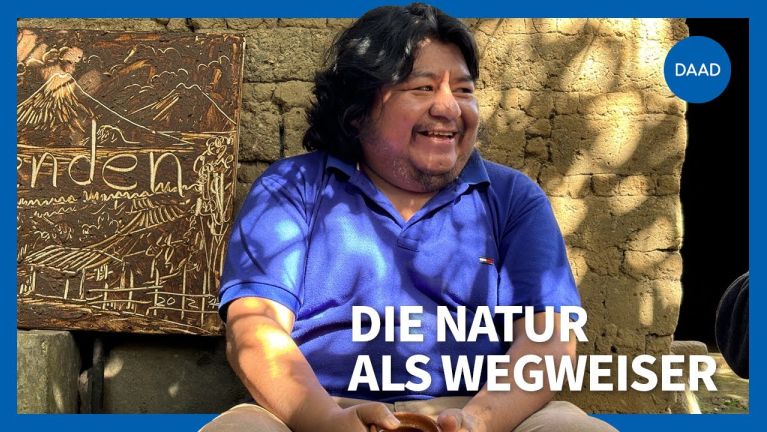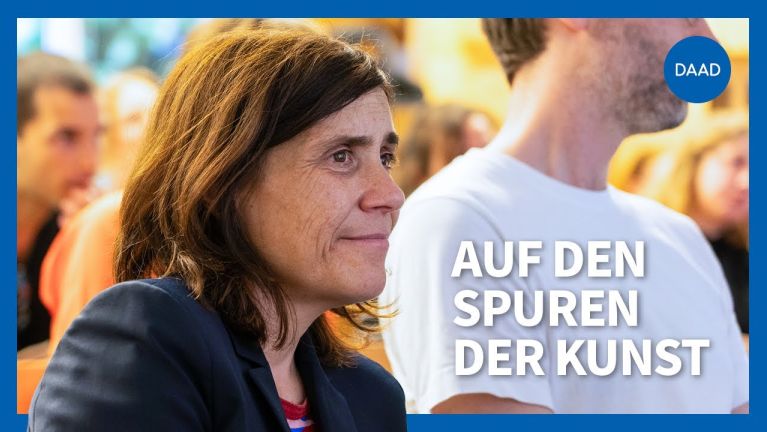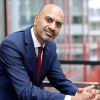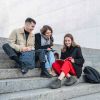With open eyes
Nobel Prize winners, NASA engineers, researchers in future studies: former DAAD scholarship holders talk about how international exchange shaped their lives and careers.
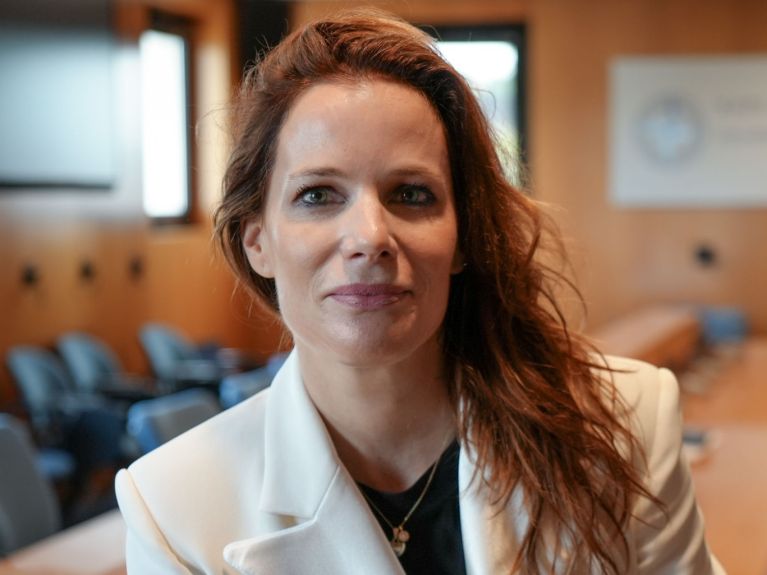
The German Academic Exchange Service (DAAD) embodies internationalism embraced in practice. Over the past 100 years it has supported millions of young people worldwide: today they conduct research in space, develop solutions to global challenges and are involved in shaping the future.
Without academic exchange and the opportunity to get to know the perspective of other cultures, we would lose depth, creativity and understanding.
Florence Gaub, Director of Research at the NATO Defense College in Rome, analyses possible future scenarios for security and defence. The Franco-German political scientist believes that without the experience abroad enabled by the DAAD, her view of the world would be different. “The more diverse a team is, the better it can grasp the uncertainties of future developments.” Encounters with other cultures have taught her how important it is to adopt new perspectives.
Dieses YouTube-Video kann in einem neuen Tab abgespielt werden
YouTube öffnenThird party content
We use YouTube to embed content that may collect data about your activity. Please review the details and accept the service to see this content.
Open consent formMy time in Germany opened my eyes to a new way of thinking and gave me the freedom to grow in an environment that was completely new and where I had to rely on others.
Grier Wilt dreamed of working for NASA even as a child. As a US citizen, a DAAD-RISE scholarship enabled her to complete a three-month research internship at the University of Freiburg in 2007 – her first ever experience abroad. Today she prepares astronauts for space missions. “International cooperation is hugely important,” she says. “This is something I realised for the first time in Germany.”
Dieses YouTube-Video kann in einem neuen Tab abgespielt werden
YouTube öffnenThird party content
We use YouTube to embed content that may collect data about your activity. Please review the details and accept the service to see this content.
Open consent formIt was a truly wonderful experience that still resonates with me, as it remains present in my memories and in my ongoing search.
Edgar Calel explores indigenous experiences and spirituality in his art. In 2022, the Guatemalan artist was a fellow of the DAAD’s Berlin Artists-in-Residence Programme. “This period of time I spent in Berlin was a gift,” he says. His encounters with artists from all over the world still have an impact today.
Dieses YouTube-Video kann in einem neuen Tab abgespielt werden
YouTube öffnenThird party content
We use YouTube to embed content that may collect data about your activity. Please review the details and accept the service to see this content.
Open consent formThe grant enabled me to come to the United States and do research in a new area of physics.
Grier Wilt dreamed of working for NASA even as a child. As a US citizen, a DAAD-RISE scholarship enabled her to complete a three-month research internship at the University of Freiburg in 2007 – her first ever experience abroad. Today she prepares astronauts for space missions. “International cooperation is hugely important,” she says. “This is something I realised for the first time in Germany.”
Dieses YouTube-Video kann in einem neuen Tab abgespielt werden
YouTube öffnenThird party content
We use YouTube to embed content that may collect data about your activity. Please review the details and accept the service to see this content.
Open consent formDie Förderung hat es mir ermöglicht, in die Vereinigten Staaten zu kommen und in einem neuen Bereich der Physik zu forschen.
In 1990, a DAAD scholarship enabled physicist Wolfgang Ketterle to conduct research into ultracold atoms at MIT – five years later he made the discovery for which he was awarded the Nobel Prize in 2001. “Our problems are global,” he says. “In science we need an international community. There’s no substitute for direct, person-to-person dialogue.”
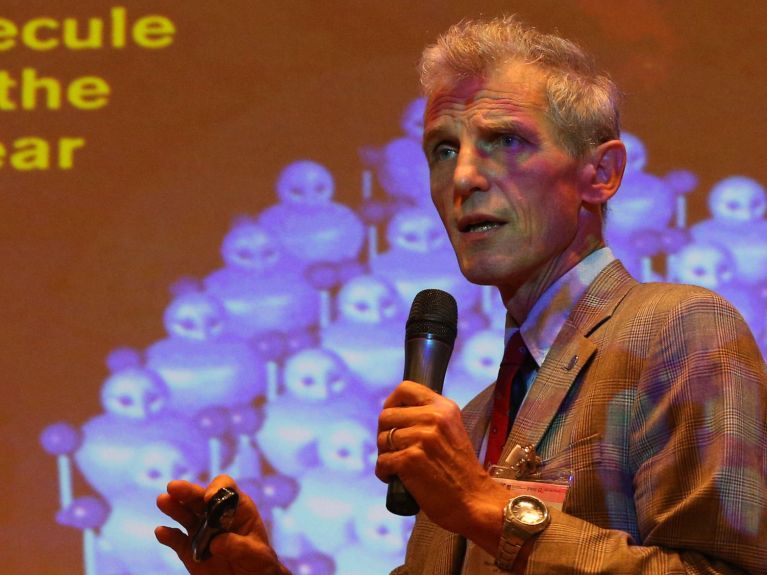
The DAAD turns 100
The DAAD was founded in 1925 on the initiative of a single student. The aim was to enable students at German universities to spend time abroad. 100 years later, as an association of German universities and their student bodies, the DAAD is now the world’s largest organisation for the promotion of international academic exchange.
All portraits, interviews and videos on the DAAD anniversary can be found here.
